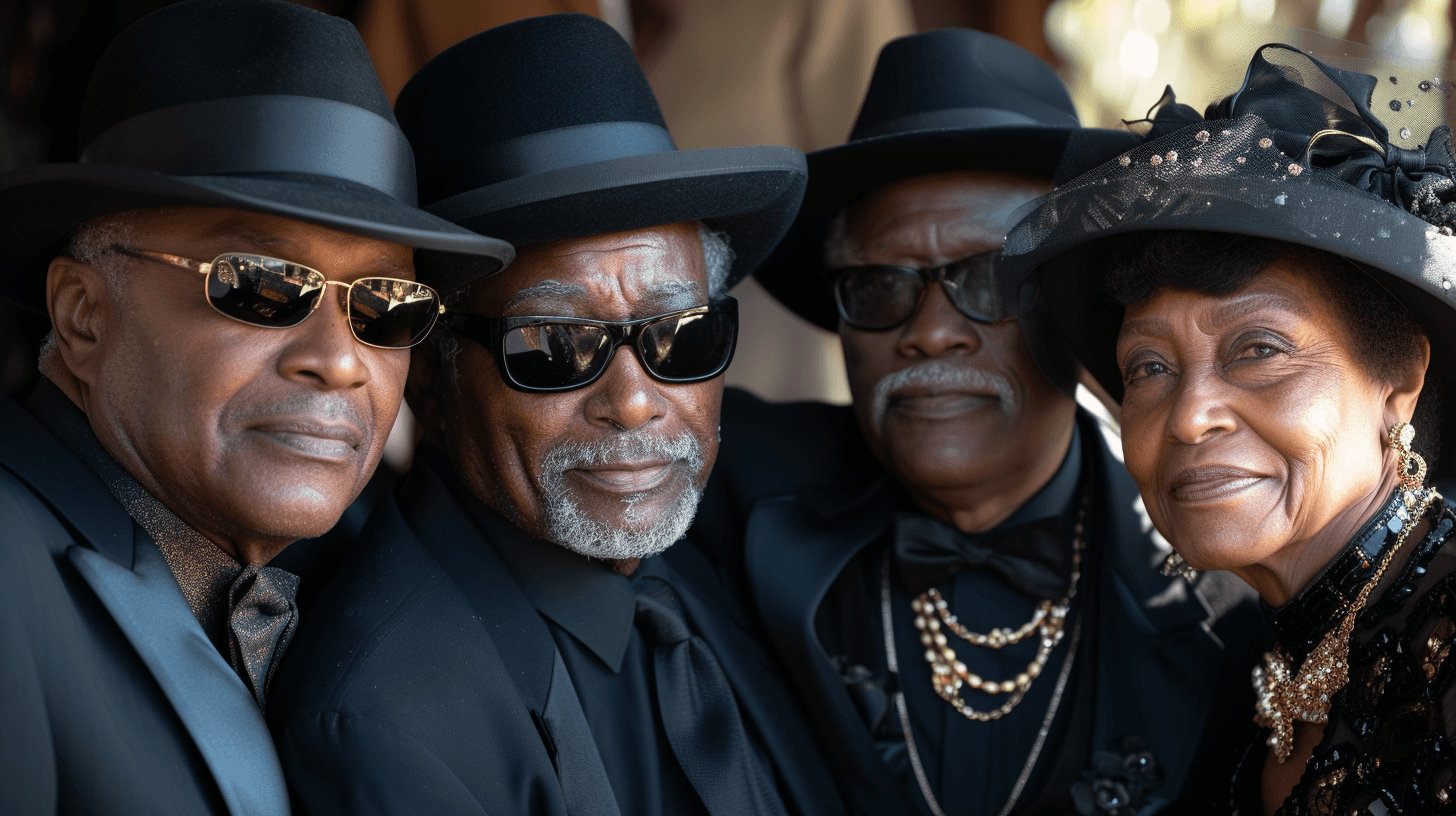Planning a Funeral Wake in the UK
Jan 5, 2024
A funeral wake in the UK is a significant gathering of friends and family following the formal funeral service. It provides an opportunity for people to come together to both grieve the loss of their loved one and celebrate their life in a less formal atmosphere than the funeral itself. Originally rooted in diverse cultural and religious traditions, the rising popularity of customised funerals in the UK has led to the wake taking on various forms, allowing it to be as unique as the individual it commemorates.
Benefits of Hosting a Wake:
Grief Initiation: Helps attendees begin the grieving process.
Closure: Provides a sense of closure for family and friends.
Honouring Memories: Offers a platform to honor the deceased's memory.
Celebration of Life: Allows for a celebration of the deceased's life.
Bringing Loved Ones Together: Reunites family and friends during a challenging time.
Origins and Historical Evolution of the Funeral Wake in the UK:
The funeral wake has evolved over time, influenced by pagan, religious, and cultural traditions. In some ancient cultures, wakes facilitated the transition of the deceased to the afterlife or allowed the living to bid farewell to their loved ones and initiate the grieving process.
Historically, the wake took place before the funeral and burial. Its origins in the UK are intertwined with Anglo-Saxon, Celtic, and Christian customs. A wake was initially a late-night prayer vigil where the family of the deceased watched over the body, likely to ward off malevolent spirits. The day following the wake often turned into a festive and celebratory occasion.
Over time, this tradition became part of Christian culture and then extended into wider society across what is now the UK. Today, the primary purpose of a wake is to provide refreshments and a space for mourners, many of whom may have traveled from afar, to gather informally and share memories of the departed.
Modern Practices - A Typical Wake in the UK Today:
While wakes retain traditional elements worldwide, some have incorporated modern components such as photo slideshows, video memories, music, and other forms of entertainment. Nevertheless, the core objective remains the same: to offer a time for family and friends to come together, both to mourn and celebrate the life of the deceased.
A typical wake in the UK can take many forms, ranging from a simple cup of tea or coffee at the church to a meal at a restaurant or drinks and food at a local bar or pub. Alternatively, you might choose a location of personal significance to the departed, such as their favorite beach, forest, sports club, or pub.
Planning a Wake in the UK:
Planning a wake, especially one that's highly personal, can be a considerable effort during a challenging time. If you're feeling overwhelmed while organising a wake alongside a funeral or cremation, consider reaching out to your a funeral provider for guidance and support in creating a meaningful gathering to honour your loved one.
Factors to Consider When Planning a Wake:
Cost: Expenses vary depending on location, food and drinks, and the number of guests.
Venue: Choose a location before proceeding with planning, as it can significantly impact the overall cost.
Timing: Typically, the wake follows the funeral directly, but this can be flexible depending on the venue's distance from the funeral home.
Refreshments: Decide on the types of food and drink to be served, considering the deceased's favourite dishes, potential contributions from friends and family, or the use of a professional catering service.
Traditions: Determine whether religious or cultural elements will be incorporated.
Speeches: Decide if a family member or close friend will speak or if multiple guests will share memories and stories.
Entertainment: Consider whether any activities or entertainment will be included.
Invitations: Notify guests promptly to confirm numbers with the venue and catering service.
Popular Venues for a Wake in the UK:
The choice of venue depends on the needs and budget of the deceased's family and friends. Consider whether the deceased had a favourite restaurant, bar, pub, or another place with sentimental value.
Funeral Homes: Most common venues for wakes, often equipped with dedicated spaces and supportive staff.
Churches: Suitable for those with a religious connection, offering a peaceful atmosphere.
Community Centres: Affordable, casual options with various spaces available for hire.
Restaurants: Ideal for informal wakes, especially if the departed enjoyed good food.
Hotels: A luxurious option for larger gatherings with accommodation for distant mourners.
At Home: An intimate, budget-friendly choice if the home can accommodate the guests.
Decorations for a Wake:
When decorating for a wake, simplicity is key, focusing on elements like flowers, photographs, and objects that honour the deceased. Decoration choices should be respectful and reflect the personality of your loved one, without causing offence to grieving family members.
Popular Decorations at a UK Wake:
Photographs and Videos: Displays capturing memories of the deceased.
Floral Tributes and Candles: Create a calm and intimate atmosphere.
Sports Kits: If the departed was a sports enthusiast.
Memory Table: Set up a table for guests to write in a book.
Personal Items: Include items with personal significance to the deceased.
Food and Drink Ideas for a Wake:
Selecting refreshments for a funeral wake is a flexible process that should consider the deceased's preferences, the time of year, budget, and dietary requirements.
Food and Drink Options for a UK Wake:
Buffet: A versatile option that can include a variety of hot and cold dishes.
Afternoon Tea and Cakes: A comforting choice with hot drinks and light snacks.
Restaurant Meal: A fitting tribute for food enthusiasts who had a favourite dining spot.
Home-Cooked Food: A budget-friendly and personal option, prepared by family and friends.
Planning a funeral wake in the UK requires careful consideration of numerous factors to create a meaningful and memorable gathering that pays tribute to your loved one.
Brandon Pazitka
Co-founder and CEO Timist
